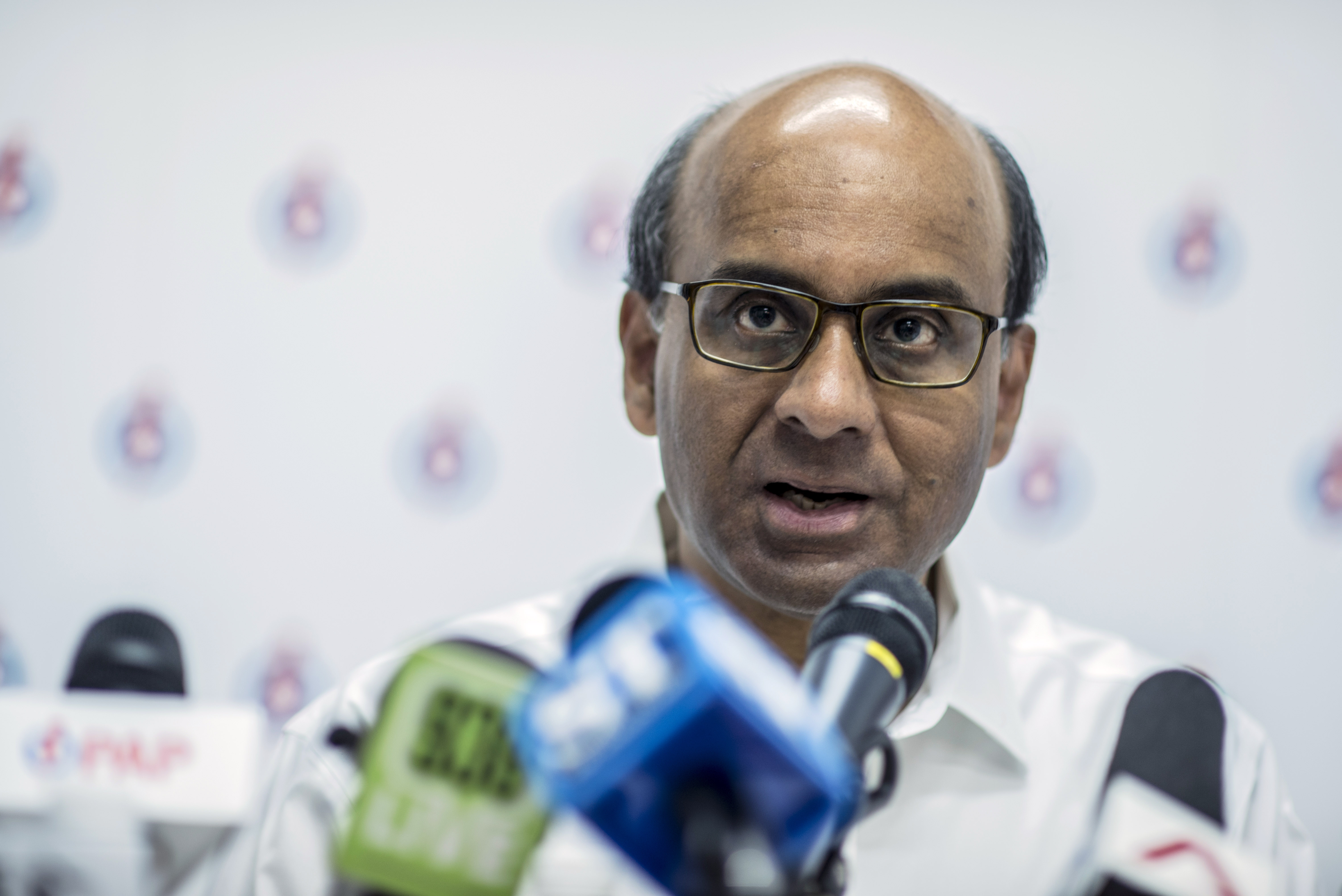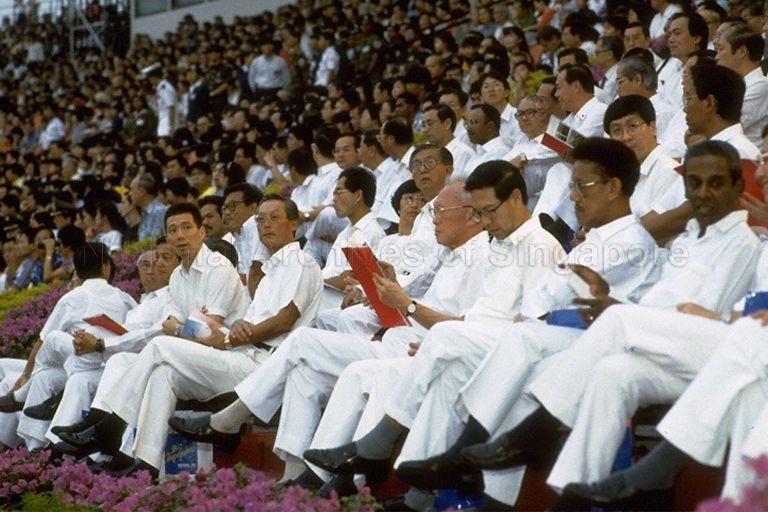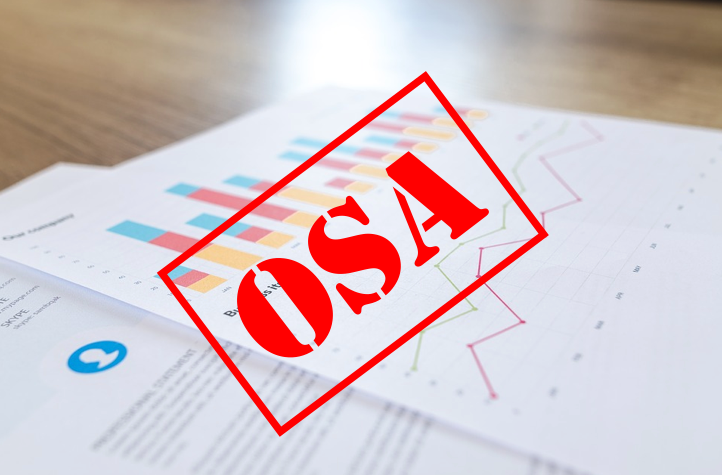The prosecution and conviction of an HDB officer for leaking confidential information to the media under the Official Secrets Act (OSA) is the first known case in 25 years.
Before this recent case, there was another OSA-related case that saw the leaking of confidential government information a quarter of a century ago in 1992.
And it happened two years after Singapore experienced a change in Prime Minister from Lee Kuan Yew to Goh Chok Tong who had promised a "more consensual style".
The case attracted international attention on Singapore government's control of information.
For many people, it was probably the first time they have heard of an individual -- Tharman Shanmugaratnam, who would go on to become of the key member of the third generation of leaders.
Who was charged
- Tharman Shanmugaratnam, Director, Economic Department of the Monetary Authority of Singapore (MAS). (He later entered politics in 2001 and went on to become Deputy Prime Minister)
- Manu Bhaskaran, an economist at Crosby Securities
- Raymond Foo, an economist at Crosby Securities
- Patrick Daniel, editor of Business Times (BT), Singapore's main financial newspaper;
- Kenneth James, BT reporter
 Photo by Lim Weixiang for Mothership.sg
Photo by Lim Weixiang for Mothership.sg
What happened
Former Singapore Press Holdings (SPH) editor-in-chief of the English and Malay Newspapers Division Cheong Yip Seng had recounted the incident in his memoirs OB Markers - My Straits Times Story:
"In 1992, shock rippled through the newsroom one morning when seven investigators from the Internal Security Department (ISD) came into the office of Business Times editor Patrick Daniel. They were acting under the Official Secrets Act (OSA), legislation broad enough to cover leakage of every kind of information. BT had a few weeks earlier published a front page story1 revealing the flash estimates of the previous quarters's GDP. The story was accurate, but the Ministry of Trade and Industry was furious. The story came to us in an unusual way. A private sector economist, Manu Bhaskaran, had visited Tharman Shanmugaratnam at his office at the Monetary Authority of Singapore, where he was then the director of the MAS economics department. The visitor saw a confidential document on the director's desk; it contained the flash estimates. Bhaskaran passed the information to his colleague on his return to the office, who in turned emailed it to Kenneth James, BT's economic correspondent."
1BT's article on June 29, 1992, had accurately forecast second-quarter growth of 4.6 percent. An official announcement of the figure was not made until August.
[related_story]
Trial and outcome of the case
The OSA is an act which prohibits the disclosure of official documents and information.
Depending on the severity of the case, the offender if convicted, will face fines and imprisonment.
All five pleaded not guilty as they did not intentionally violate the law. They were charged in Dec. 1992 and the case went on trial in Oct. 1993.
Then PM Goh had said after the investigation of the disclosure began that he would not tolerate the illegal disclosure of sensitive or classified information, adding: "You can't run a government which is leaking all over the place."
The case stretched several months. Tharman contested and was eventually acquitted of the charge of communicating the GDP growth flash projections.
He unsuccessfully contested a lesser charge of negligence but was nevertheless convicted together with all the others in Mar. 1994.
He was fined S$1,500, while the rest S$2,000.
Then DPM Lee Hsien Loong's position: A powerful signal to the civil service to protect sensitive information
Writing in his memoirs, Cheong also had taken up the matter with then Deputy Prime Minister Lee Hsien Loong, who was in charge of civil service and economic matters.

National Day Parade 1992 at National Stadium -- Cabinet ministers and Members of Parliament at grandstand, including Prime Minister Goh Chok Tong, Senior Minister Lee Kuan Yew, Deputy Prime Minister Ong Teng Cheong, and Deputy Prime Minister and Minister for Trade and Industry Brigadier-General Lee Hsien Loong (Source: Ministry of Information and the Arts Collection, courtesy of National Archives of Singapore)
He was unmoved by Cheong's fear that meaningful journalism would be jeopardised but tried to allay his concerns by explaining that the intention was not to prohibit enterprising journalism. And Cheong "should trust the government to use the law judiciously."
It was clear to Cheong that he wanted leaks plugged and to send a powerful signal to the civil service to protect sensitive information.
I could understand Lee Hsien Loong's concerns after what the British went through2: he could not afford his civil servants, including former ones, to be lax about sensitive material. Though he did not quite say so, I sensed that all he wanted was a rap on the knuckles for those prosecuted: Patrick, Kenneth, Tharman, Bhaskaran and Raymond Foo, a researcher. I tried to reassure my colleagues, who understandably were worried about going to jail. I could not see them - "five distinguished gentlemen", then Attorney General (AG) Chan Sek Keong called them - being imprisoned for this offence. Certainly I could not see Tharman or Patrick locked up. The case sparked intense debate in the foreign press. They saw it as an attack on press freedom because the flash estimates could hardly be considered a threat to the nation. The AG took the unusual step of prosecuting the case himself, because he wanted to establish a principle, namely that divulging classified information was a breach of the Act. He won the case and then sprang a surprise by asking the judge Richard Magnus not to impose a custodial sentence. So a rap on the knuckles was ordered to my relief. SPH paid the fines for our two journalists, $2000 each.
Here are a few interesting articles you should check out next:
My Mom went on a day out with a film camera. Here’s how she views the world
Why you should reignite that kampong spirit with your neighbours
If you like what you read, follow us on Facebook, Instagram, Twitter and Telegram to get the latest updates.
